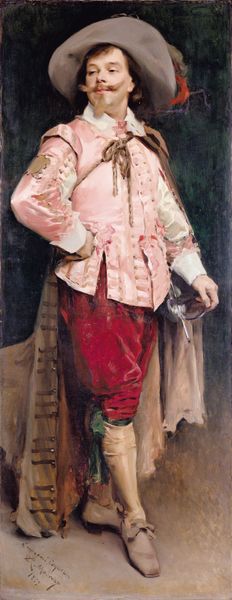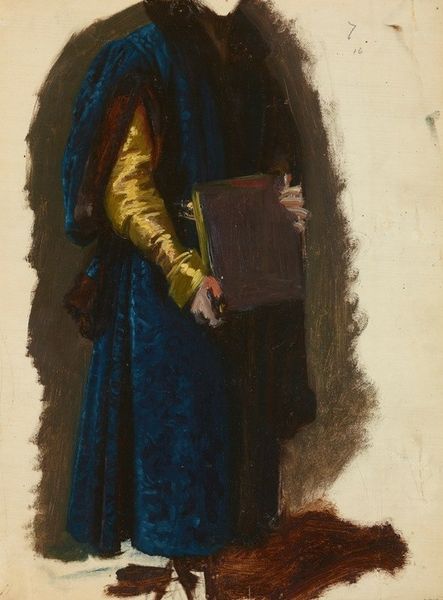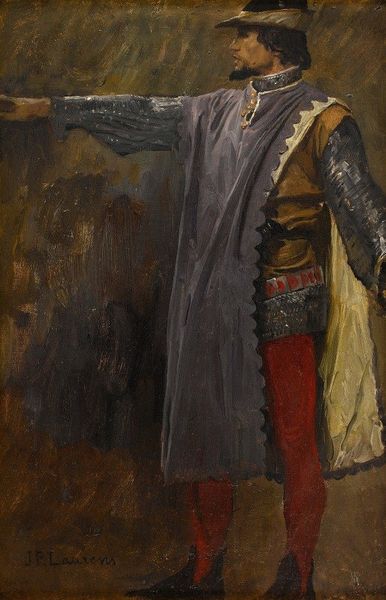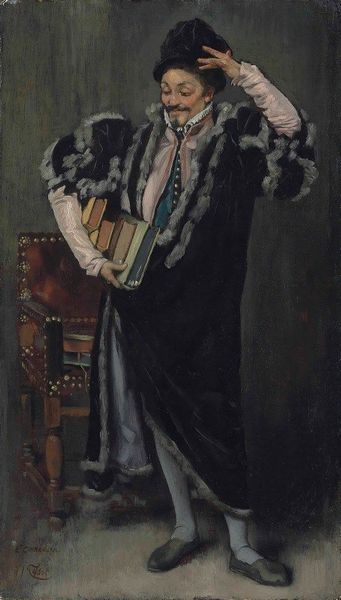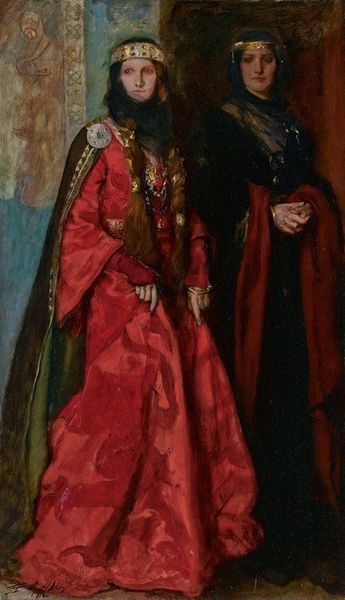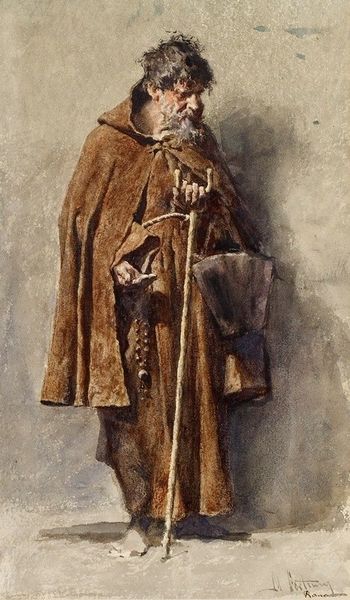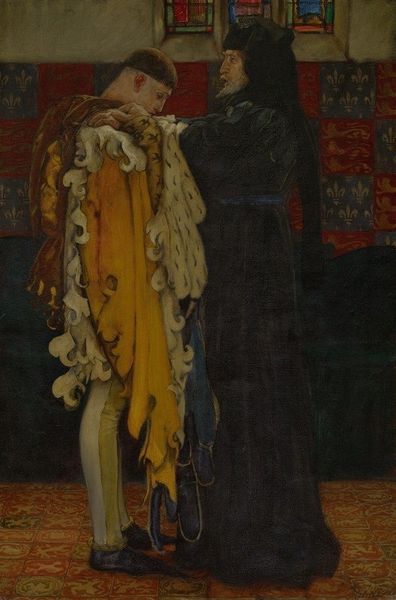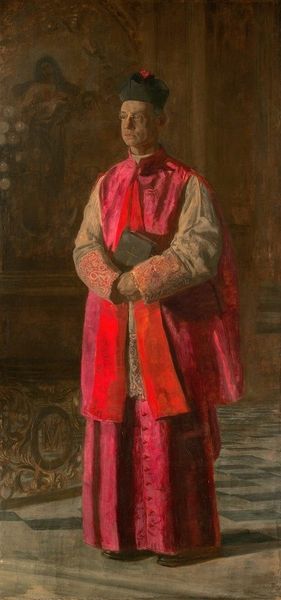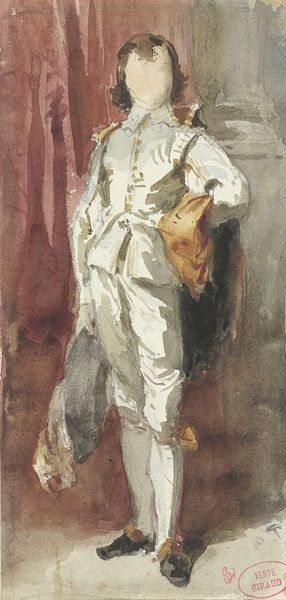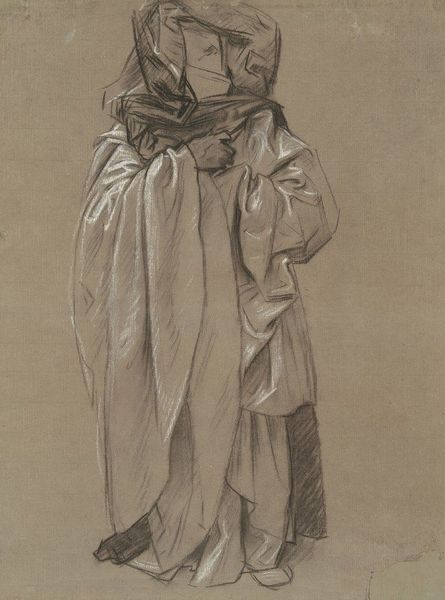
watercolor
#
portrait
#
figurative
#
figuration
#
oil painting
#
watercolor
#
watercolour illustration
#
history-painting
#
pre-raphaelites
#
academic-art
#
portrait art
#
watercolor
Copyright: Public Domain: Artvee
Editor: Here we have Edwin Austin Abbey’s watercolour, *Iago, from Othello*, painted in 1902. There's something so striking about the character’s almost theatrical pose and that vibrant red. What draws your eye when you look at this piece? Curator: Immediately, I see the weight of the color itself. Red, throughout history, has symbolized so many potent concepts—passion, danger, royalty. Iago is cloaked in it, almost drowned by its implications. Do you sense a similar ambivalence in how Abbey presents him? Editor: I do, especially in his expression. There’s a calculating look, but also a hint of weariness. It’s more complex than I imagined. Curator: Precisely! Consider the theatrical tradition of costuming. Abbey presents Iago adorned, almost trapped, within these symbolic layers. Think about what Shakespeare does with Iago; how he uses language to manipulate appearances, to conceal true intent. It makes you wonder about the relationship between inner life and outward performance, doesn't it? Editor: Definitely. I hadn’t thought about the performative aspect so much. Now that I look, the red seems almost like a mask itself. Curator: Indeed. And observe how Abbey, aligned with the Pre-Raphaelites, evokes an earlier visual vocabulary. In his art is the past shaping and haunting the present. The past helps viewers reflect on history, power and ambition. What have we learned about Iago through art, performance, and colour? Editor: This has really illuminated how even seemingly straightforward portraits can hold so many layers of meaning – historical, psychological, theatrical!
Comments
No comments
Be the first to comment and join the conversation on the ultimate creative platform.
